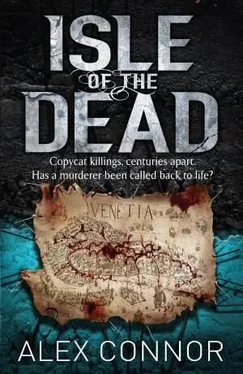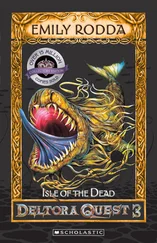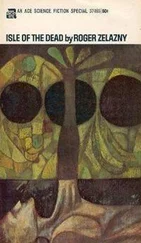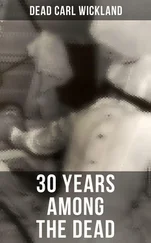79
Edward Hillstone, aged 34, of Spitalfields, London, committed suicide in Wormwood Scrubs Prison on 14 January. He had been charged on numerous counts and had pleaded not guilty to all of them, forcing a jury trial. Although Hillstone had not been considered a suicide threat, he had hanged himself in the early hours.
He left no suicide note, just a brief letter to Nino Bergstrom.
It read:
I couldn’t leave without giving you the answer you most wanted. I was The Skin Hunter, and you asked where I hid the skins. You know they weren’t in the Spitalfields house, and I wouldn’t have put them with the Titian. So I leave you with a puzzle, Mr Bergstrom.
You’re clever, you beat me. Now solve this.
The skins are where they should be.
Regards,
Edward Hillstone
‘The skins are where they should be …’ Puzzled, Nino read the letter to Gaspare for the third time, both of them weighing the words.
‘Where should skins be?’
Gaspare shrugged. ‘Does he mean it literally? Like the skin on an animal?’
‘Or on fruit?’
‘Or on milk?’
Nino raised his eyebrows. ‘ On milk? ’
‘So you make some better suggestions,’ Gaspare retorted. ‘I’m doing my best.’
‘“ They are where they should be .”’ Nino repeated the words. ‘A skin should be on a body. But the skins were taken off the women’s bodies. So does he mean that they’re in a grave, perhaps?’
Gaspare shook his head. ‘Nah, that would be too difficult. There are millions of graves – where would you look? Italy? Japan? London?’
‘Skins … where should they be?’
‘Hillstone wants you to find them,’ Gaspare said. ‘That much is obvious. So the clue must be solvable.’
They sat in silence, both preoccupied with their own thoughts. At times Nino would think he had the solution, then slump back in his seat, disappointed. A wind blew up outside, making peevish darts at the gallery windows, a car alarm going off just after six. Another hour droned on, then, suddenly, he rose to his feet.
Surprised, Gaspare looked at him. ‘What is it?’
‘I think I’ve solved it,’ Nino replied, grabbing his coat and running out.
On the street, he phoned the police in charge of the Hillstone case and told them what he suspected. He knew they would listen to him and follow it up, contacting their colleagues abroad. All he had to do now was to wait. Just wait, for an hour. Give them enough time … Impatiently Nino paced, checking his watch every other minute, Gaspare watching from the gallery window above. The day lengthened, wind tossing up rubbish, a splatter of cold rain making gloomy haloes round the street lamps.
The minutes sulked along until, finally, the time had come. His hand shaking, Nino took out his mobile. Looking up a number he hadn’t used for a while, he phoned Venice, a maid answering at the di Fattori residence. After asking to speak to Seraphina, he waited for her to come on the phone.
‘If you want to tell me that Eddie’s dead, I know already.’
‘You’ve got them, haven’t you?’
‘What are you talking about?’ she asked, her tone wary. ‘Got what?’
‘The skins. The skins of the women Edward Hillstone killed. He told me—’
‘Liar!’
‘You said there was no evidence. That no one had seen or heard anything. That you could explain everything by saying Hillstone had you in fear of your life. But you can’t explain everything.’ Nino paused, hearing a commotion on the other end of the line, the sound of footsteps and raised voices. ‘Hear that? That’s the police, Seraphina. They’ve come for the skins. And they’ll find them, won’t they? Like Hillstone said, they’re where they’re supposed to be . And that’s with you.’
He could hear her drop the phone and took in a breath. Like all killers, Seraphina had kept trophies. She hadn’t been able to resist. And it would be the skins that would damn her.
A normal woman – or a woman under threat, as Seraphina di Fattori claimed to be – would never keep such mementos.
Edward Hillstone was dead. But he had got his revenge.
Venice, 1556
I came to Venice from Rome. One of seven children and damaged at that. It was the year I was ten and was put upon a boat for Venice. They told us the Republic was like Heaven, that children cried to be admitted and food was plentiful. They said, I remember, that no one minded a twisted foot. That I would be welcomed, treasured for my difference.
I was not treasured. The boat was thrown about in the sea and made me sick, I leaned over the side and vomited, my face looking back at me from water as dark as a burnt candle stub. I am afraid of water, always have been. They took us to the quayside, pulled us up, pummelled and pinched, and people came to view us in the heat. I was still sick from the boat and stood like a goat, whining and trying to hide my deformity.
He was passing on the street and turned to the bargaining voices of the people, of those wanting little servants to pet and bully. I would not be chosen; I was not pretty, nor quick. I feared my house would be a poor place, my owner quick in temper. And I could not even speak when I was taken by the arm, and stumbled clumsily.
Come with me, he said. Come on, come with me.
He was tall, with a beard and a coaxing voice, and he walked at my pace without making me a laughing stock for limping. When we came to his home he unlocked a garden gate and guided me in. Lemons were hanging heavy from trees, oranges ripe in terracotta pots, a cat sunning itself by an open door.
Come with me, he said again.
I believed it then. That Venice was a Heaven children cried to enter. Mute, I looked around me, at paintings high as trees, at faces real as those I had just passed. On easels and against walls, canvases reeking of oil paint and linseed threw up scenarios of living things that were not living. He had depicted dogs, fur that was trembling to be stroked, water that would trick a river’s flow, and women so beautiful they prompted tears.
From that day on I was the master’s servant. I grew with Titian, had no talent to be honed, but served him as a child his father. Without a family, he loaned his to me. And so I grew to love him as I grew in age. I kept his studio, made his food, washed his clothes. Although there were many other servants, I let no one close. For Titian had rescued me. Had saved my life. No harm, I swore, would ever come to him. No injury. My life, no less, was forfeit should it serve him.
And so I watched. And so I learned. People do not see cripples. Or if they do, they think them idiots. I was no fool. And so I saw my master triumph. The Doge was his friend, kings admired him, Venice held him up as a cross before battle. And yet for all of this, he let the writer in.
It was a solemn day when Aretino came to Venice. Puffed up with reputation, eager to triumph, seeing in Titian a brilliance and a fullness of heart to massage dry. But Titian grew to love this ravenous dog. He loved the beast. He made excuses, feted him, advanced this corpulent bag of pus until his name did rival Titian’s own.
And he never once suspected what I knew.
It was last Thursday that Aretino came to Titian’s home and begged for entrance. As I well knew, my master would eventually relent. And so he did, letting this murderer, this traitor, this mountebank, enter his life again. And to what end? To what dank scandal? What unrivalled disgrace?
I made them supper, watched them eat. The pig wheezed and snuffled about his food, laughed, told stories, sought to beguile again. And Titian, watching like a chicken does a fox, was mesmerised by him. They ate. I served them. They drank. I poured the wine. Outside the sea waited for its next drowning.
Читать дальше












